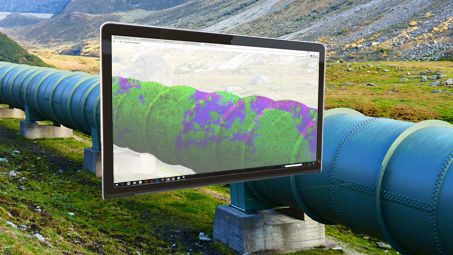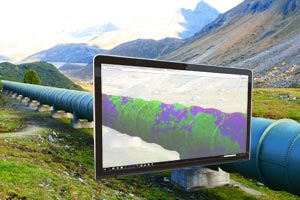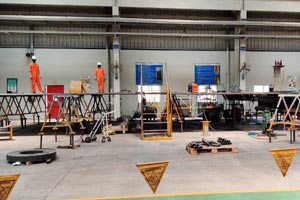Your
Key Issues
Part of the current oil and gas pipeline network is considered impassable. This is due to many different reasons, such as multiple diameter lines, sharp bends, events (floods, landslides and earthquakes) or human activity such as mining, agriculture and construction. Apave has a number of inspection tools capable of inspecting their pipelines both above and below ground. The objective is to obtain accurate information on pipeline integrity, pipeline stress and potential locations where an ILI tool would get stuck.
- Ensuring the Integrity and Reliability of the Product
- Preventing Accidents and Saving Lives
- Aiding in Product Design
- Controlling Maintenance Processes
- Lowering Maintenance Costs
- Maintaining Uniform Quality Level
Our services
for pipelines
- Fitness for purpose/service
- Assessment of remaining service life
- Failure analysis
- HAZOP study
- Safety Integrity Level Verification studies
- Construction supervision on site or quality inspection on site
- Audit/Qualification/Supplier Approval
- Statutory inspection and certification: PED, TPED
- Radiographic testing
- Gamma ray – (Ir-192, Co-60, & Se-75) & X-rays
- Small Controlled Area Radiography (SCAR) / Close Proximity System (CPS)
- Digital Radiography
- Computed radiography
- Ultrasonic testing
- TOFD (Time Of Flight Diffraction)
- Phased array UT
- Magnetic Particle testing (Wet & Dry - Fluorescent & Non Fluorescent)
- Liquid Penetrant Testing (Fluorescent & Non-Fluorescent) Hardness testing
- Ferrite testing
- Leak Detection
- Other testing
- Visual testing
- Hardness testing
- Alloy Analyzer – PMI BY XRF
- Repair & Servicing of NDT Equipments
- NDT Training & Consultancy
Gas pipelines
special facilities
From gas extraction sites, compressor stations, regulator stations and pipelines to the transport of this gas, the safety of gas pipelines is special. Apave is present throughout the pipeline life cycle (design, construction, operation and maintenance).
From construction sites, through supervision of site construction, quality inspection in the field and safety and reliability during pipeline maintenance, Apave has developed know-how in the technical inspection of constructions, non-destructive testing of installations and certification of management systems.
Apave's international experience in risk management enables us to offer you solutions adapted to your problems in order to guarantee the continuity of gas transport.

Current Magnetometric Inspection (CMI)
one of our many solutions
Current magnetometric inspection (CMI) is able to overcome many constraints. CMI is a method that does not require direct assessment in contact with the pipeline.
Although buried, the geographical location of pipelines is not fixed and continues to change due to various natural and human events. This unwanted movement causes additional stresses that threaten the integrity of pipelines, such as bending, buckling, wrinkling and even cracking.
This is particularly important after events such as floods, landslides and earthquakes, in order to measure the impact of potential damage. The remotely operated aerial CMI can receive information on the movement of the line immediately after the events, without any threat to the line inspector. It is possible to inspect areas where human access is prohibited.
Indeed, it is possible to determine the absolute position of the pipeline with a specified maximum uncertainty of only 40 mm.
With different inspections, the data is compiled to provide a complete picture of the pipeline integrity.
CONTACT US
Why Choose
Apave India ?

Our customer relationship approach

Our competitive prices





